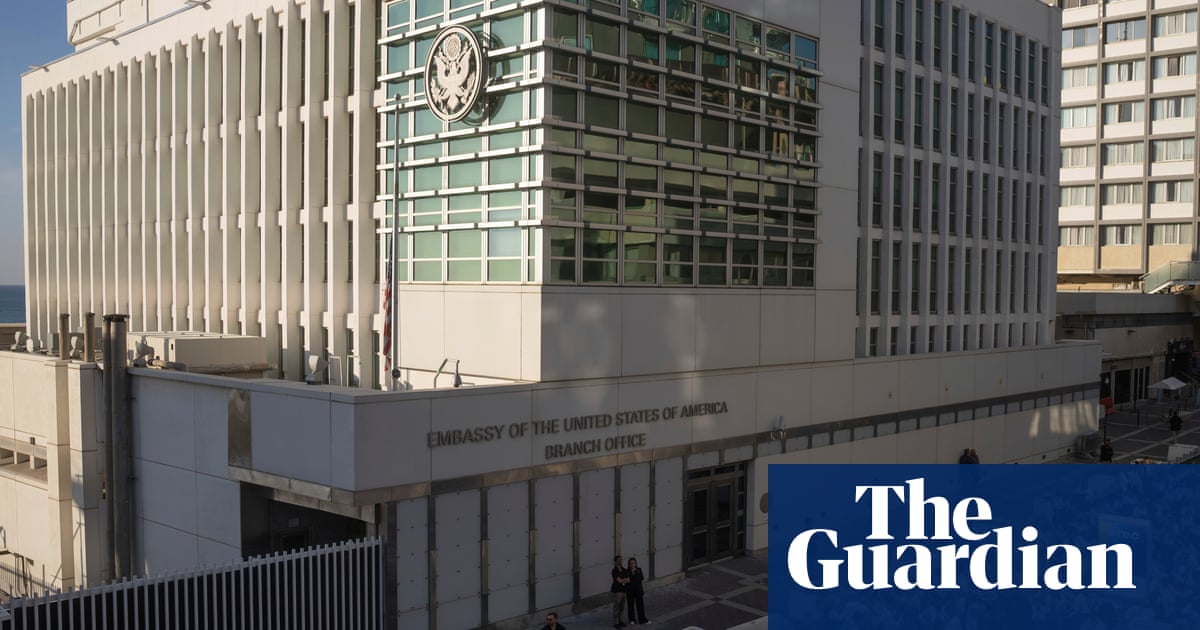Only a third of the recommendations from major reports commissioned to tackle endemic racism in the UK over the past 40 years have actually been implemented, a Guardian investigation has found.
The Guardian’s analysis – published ahead of the fifth anniversary of the Black Lives Matter protests – has led experts involved in some of those inquiries to demand the government break the “doom loop” of inaction.
In the face of rightwing backlash against equalities work, they urged ministers to act on the hundreds of recommendations that have been ignored.
The Guardian analysed 12 reports into racial inequalities commissioned by ministers since 1981, often in response to scandals and unrest – such as the murder of Stephen Lawrence and the Windrush scandal.
Of the nearly 600 recommendations – which span education, business, health, the criminal justice system, and community cohesion – Guardian analysis found that fewer than a third had been fully actioned, and that progress on others had been reversed or significantly eroded during years of government austerity policies.
Just under a third of recommendations were not implemented at all. The remainder were either only partly implemented, often in symbolic, limited or inconsistent ways, or were too vague or difficult to measure.
Labour MPs said the UK was trapped in “a performative cycle”, where a crisis prompted a report to be commissioned to “diffuse anger” and its recommendations were later quietly shelved.

Prof Ted Cantle, the former chief executive of Nottingham city council, led the community cohesion review team after 2001 riots in northern towns with predominantly white and Asian populations.
Analysis by the Guardian has suggested that of his recommendations, an estimated 5% had been fully implemented, while more than a third had not been implemented at all. The rest had been partly implemented or were deemed not measurable for this analysis.
Cantle said: “We’re in this doom loop where a riot happens or there’s an acknowledgment of some sort of issue, a review happens and the recommendations aren’t really taken up and then the process starts again.”
After last year’s riots, Cantle renewed the call he first made in 2001 for a community cohesion strategy. “There is no doubt in my mind that there has to be, at the heart of government, an agency, a department, that is focused on developing cohesion and provides a national strategy, a national narrative, which is then implemented at the local level by the local government, by voluntary agencies.”
Lord Victor Adebowale, the chair of the NHS Confederation, made 28 recommendations after his 2021 review of mental health and policing, which examined the disproportionate number of Black men dying in police custody.
Analysis suggested an estimated 14% of his recommendations have been fully implemented, while around a quarter was ignored. “A healthy society is an equitable society,” he said. “It’s one that understands individuals, communities and the interactions between them in such a way that they can provide appropriate services.”
Since the riots that broke out in the UK last summer, the rightwing Reform party has taken control of 10 councils, vowing to target equality, diversity and inclusion policies, while Keir Starmer has said the UK risked becoming “an island of strangers” without further controls on immigration.

Adebowale told the Guardian that while it has become easier to “pander to prejudice [than] to lead progressively”, stark racial inequalities remain as “successive governments, not just this one, fail to accept the systemic nature of race discrimination”.
He said: “If you look at the stats, Black men are still disproportionately detained. If you pick any one of the major disease categories, you’ll find that Black people have a greater, worse experience and worse outcomes. You look at cancer, Black people are likely to discover they’ve got stage four in A&E. If you look at mental health, they have a worse experience and worse outcomes … on and on it goes.”
Adebowale said if all of the 27 recommendations he made had been implemented, he was “pretty certain” that some deaths since “wouldn’t have occurred”.
The Guardian’s analysis found that some recommendations made in official reports produced since 1981 were implemented initially but later dropped or significantly altered.
Several recommendations from the 2001 Cantle report were introduced under the Blair and Brown governments – for example, the requirement for Ofsted to inspect and report on the public duty on schools to promote community cohesion, the expansion of Sure Start to support disadvantaged children early and prevent disengagement from education, and other youth outreach work such as Connexions Service.
However, these programmes were substantially defunded during the coalition government’s austerity drive in the 2010s, and many were later dismantled entirely under the subsequent Conservative majority government.
Some recommendations, such as Adebowale’s on developing safer models on restraint, come up again in later reports. The issue of deadly use of restraint, particularly those in the prone position, came up four years later in the Angiolini review in 2017, yet multiple individuals have died in custody while being restrained, including in prone-position holds.
Many recommendations the Guardian assessed to have now been fully implemented were first made decades ago, resurfacing in two or even three subsequent reviews before finally being acted on – often after 10 or even 20 years.
Others, such as the call for police forces and teaching staff to reflect the communities they serve, or for the curriculum to meaningfully reflect Britain’s racial diversity, have been repeatedly recommended but remain unmet.
The Guardian’s snapshot analysis builds on earlier work by the Stuart Hall Foundation and the Centre for Public Data.
While a majority of recommendations made over five decades have not led to policy changes in the public sector, David Tyler, who co-chaired the Parker review which made recommendations to the private sector, said big business has acted.
The Parker review set FTSE 100 businesses a deadline of having one minority ethnic board member by 2021, and also said each FTSE 250 board should have at least one director of colour by 2024.
The review’s yearly update earlier this year found that 95% of FTSE 100 companies now have one minority ethnic board member, while 86% of FTSE 200 companies could say the same.
Tyler said: “Broadly, unless you’re talking about the very recent past, which has been influenced above all by Donald Trump and Maga, it’s moved in the right direction in terms of the attitude of business people to take the best possible talent from the ethnic minorities in the UK.”
Nonetheless, the number of recommendations made to the state that have been “shelved” meant the UK was “trapped in a performative cycle” when it comes to racial inequality in the UK, the Labour MP Clive Lewis said.
“This research sadly confirms what many of us have long suspected: when it comes to race equality in the UK, we are trapped in a performative cycle – crisis, commission, then conveniently shelved recommendations.
“From Scarman to Macpherson to Lammy, we’ve seen inquiry after inquiry confirm what racialised communities already know: that systemic racism is real, it’s persistent, and it’s baked into the institutions that shape our lives. But instead of acting on those truths, successive governments have treated these reviews as fire blankets – designed to smother outrage, not spark change,” said Lewis.
The Labour MP Bell Ribeiro-Addy urged the government to act. She said: “Looking at the British state’s track record, you could be forgiven for thinking the main purpose of race inquiries past has been to diffuse anger around the many inequalities facing Black communities in our country and divert attention away from securing real change.”

 4 hours ago
3
4 hours ago
3

















































